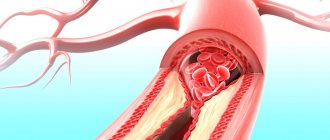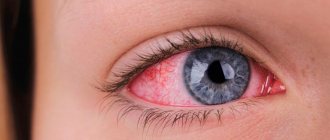Let's look at how Nurofen affects the human and vascular system: does it raise blood pressure, why is it taken and can it cause harm?
Nurofen is a non-steroidal anti-inflammatory medicine with antipyretic and painkillers. In pediatrics, it is used to relieve the unpleasant symptoms of colds and viral diseases, as well as eliminate all types of pain (headache, teeth, muscles).
What is Nurofen?
Nurofen is a medication from the group of non-steroidal anti-inflammatory drugs (NSAIDs), which is a derivative of phenylpropionic acid. It reduces the production of hormone-like substances - prostaglandins in the body, due to which it reduces pain at the site of inflammation, eliminates inflammatory processes, and also relieves fever (fever) no less effectively. Nurofen has an immunomodulatory effect (regulates or normalizes the functioning of the immune system), stimulating the formation of endogenous interferon (blood proteins secreted by the body's cells in response to the invasion of the virus), and increases nonspecific resistance (the body's resistance to the effects of various factors) of the body.
Nurofen is used to reduce fever and also as an analgesic and anti-inflammatory agent. Helps with headaches, toothaches, arthritis, back pain, menstrual pain in women, osteoarthritis, as well as pain from kidney stones or to reduce pain from minor injuries.
What you need to know before you start taking Nurofen
Nurofen should not be taken if you have heart disease, or before or after surgery on the cardiovascular system.
The drug should be taken with caution by older people, as there is a risk of gastric and intestinal bleeding.
If you have a confirmed allergy to Nurofen or have a history of an asthma attack, hives or a severe allergic reaction after taking medications such as aspirin, paracetamol or other NSAIDs (non-steroidal anti-inflammatory drugs), you should avoid using Nurofen as it may cross allergic reaction (the occurrence of an immune response to allergenic molecules that are similar in structure and function and are found in various organic products).
Consult your doctor about the safety of using Nurofen individually for you if you have the following conditions:
- heart disease (congestive heart failure, cerebrovascular disease, arterial hypertension, coronary heart disease, dyslipidemia/hyperlipidemia (abnormally elevated levels of lipids and/or lipoproteins in human blood));
- diabetes;
- smoking;
- history of heart attack, stroke;
- history of stomach ulcer or gastrointestinal bleeding;
- asthma;
- liver or kidney diseases;
- swelling due to fluid retention in the body;
- connective tissue diseases such as Marfan syndrome, Sjögren's syndrome or systemic lupus erythematosus.
Taking Nurofen during the third trimester of pregnancy may cause harm to the fetus. Pregnant women should not take this medicine without consulting a doctor.
It is not known whether Nurofen passes into breast milk, so the risk of effects on a nursing infant cannot be ruled out. Consult your doctor before using the drug. Stop breastfeeding while you are taking the medicine.
Although Nurofen for Children (suspension) can be given to children from 6 months of age, do not give the medicine to a child under 2 years of age on your own without consulting a doctor.
Components and release form
The drug is produced in 2 forms: gel and tablets. The tablets are coated with a light film and have a round shape. Sold in packages.
Nurofen in gel form is intended for external use. It has a colorless and homogeneous consistency with an inherent odor of alcohol.
The main component is ibuprofen. The tablets contain auxiliary elements: croscarmellose sodium, colloidal silicon dioxide, stearic acid.
Additional components in the gel are: sodium hydroxide, isopropyl alcohol, water.
How to take Nurofen?
Nurofen must be used exactly as indicated in the instructions for the drug or as prescribed by your doctor. Do not take more than recommended dosage or exceed the recommended duration of use. Always take only the minimum effective dosage.
The maximum dosage of Nurofen for adults is 800 mg at a time or 3200 mg per day (4 maximum doses). Use only the minimum amount needed to relieve pain, inflammation or fever.
The dosage of Nurofen for a child depends on his age and weight. Therefore, taking the drug for children is possible only as prescribed by a doctor.
In order to protect the stomach from the irritating effects of Nurofen, you can combine taking the drug with food or milk.
If you purchased the medicine in suspension form, shake the bottle thoroughly before measuring the dose using a measuring spoon or syringe.
Be careful!
If you take Nurofen for a long time, you must undergo regular tests and a medical examination.
The medicine should be stored at room temperature away from moisture, heat and sunlight. The drug in the form of a suspension cannot be frozen.
Before use, be sure to read the instructions and consult your doctor.
Instructions for use
It is better to use the medicine only after consultation with a specialist and as prescribed.
Tablets can be given to adults and children over 12 years of age, no more than 200 mg 3-4 times a day. The drug is taken after meals. For faster and more noticeable results, you can double the dose and take it 3 times a day.
The ointment is intended for external use. Can only be used by persons over 12 years of age. No more than 125 mg of the main active ingredient can be used at a time. The gel can be applied no more than 4 times a day, with an interval of at least 4 hours. If after 12-14 days the condition does not improve, then you should stop taking the drug.
Method of use and dosage of Nurofen
Application and dosage of Nurofen for adults:
- for dysmenorrhea (painful menstruation): 200-400 mg orally every 4-6 hours as needed;
- for osteoarthritis and rheumatoid arthritis: initial dose of 400 to 800 mg orally every 6 to 8 hours. The maintenance dose may be increased to a maximum daily dose of 3200 mg depending on the patient's condition and tolerability;
- for pain or fever: for mild to moderate pain, the drug is taken orally at a dosage of 200 to 400 mg every 4-6 hours as needed. Doses above 400 mg have been shown to provide greater effectiveness.
For intravenous administration, the application regimen is as follows:
- for pain: 400 to 800 mg IV over 30 minutes every 6 hours as needed;
- for fever: initial dose - 400 mg intravenously over 30 minutes, maintenance therapy - 400 mg every 4-6 hours or 100-200 mg every 4 hours if necessary.
Application and dosage of ibuprofen for children from 6 months to 12 years:
- 5 mg/kg for temperatures below 39.2° orally every 6 to 8 hours as needed.
- 10 mg/kg at temperature greater than or equal to 39.2° orally every 6 to 8 hours as needed.
The recommended maximum daily dose for children should not exceed 30 mg/kg.
Composition and pharmacological properties
The active substance is ibuprofen, an acid derivative of phenylpropionic acid. Once it reaches the stomach, it is quickly absorbed into the bloodstream, interacting with specific receptors, inhibiting the production of prostaglandin, which causes inflammatory reactions. Therefore, taking Nurofen provides:
- anti-inflammatory effect;
- Pain with relief;
- Normalization of thermoregulation.
In addition, the drug activates the synthesis of its own interferon. There is stimulation of the immune system. The body begins to deal with viruses and infections faster.
The drug begins to work after 15 to 20 minutes from administration. Symptomatic effects are maintained for 6-8 hours. It is then excreted in urine, then choke.
What should you not do while taking Nurofen?
Be careful!
While taking Nurofen, drinking alcohol is prohibited. Taking alcoholic beverages and this drug together increases the risk of gastric bleeding.
You should also avoid taking aspirin at the same time while taking Nurofen, as the combination of these drugs can cause a stroke or heart attack. Aspirin is often used in the treatment of cardiovascular diseases, and Nurofen reduces its effectiveness.
If you need to use both drugs, take Nurofen at least 8 hours before or 30 minutes after taking aspirin if the aspirin is in a form without a gastro-resistant coating.
Before using any cold, allergy, or pain medicine, consult your doctor or pharmacist. Many over-the-counter medications contain aspirin or other NSAIDs. Taking some medications together can lead to an overdose and serious side effects. Read the instructions carefully to find out if the medicine contains aspirin, ibuprofen, paracetamol or other NSAIDs.
What are the side effects of Nurofen?
Common side effects of Nurofen are:
- upset stomach, mild heartburn, nausea, vomiting;
- bloating, gas, diarrhea, constipation;
- dizziness, headache, nervousness;
- decreased appetite;
- mild itching or rash;
- tinnitus.
In individual cases, the list of side effects can be much wider. Ask your doctor about individual sensitivity.
Allergic reactions to Nurofen include the following symptoms:
- rash;
- hives;
- sneezing;
- runny or stuffy nose;
- wheezing or difficulty breathing;
- swelling of the face, lips, tongue, or throat.
If you have one or more of the above symptoms as a result of an allergic reaction to Nurofen, you should immediately contact an ambulance for symptomatic treatment.
Symptoms of an overdose of Nurofen
You should immediately stop using Nurofen and consult a doctor immediately if you experience the following symptoms that may indicate an overdose of this drug:
- changes in vision (decreased clarity, distorted colors);
- shortness of breath (even with light exertion);
- swelling of the body or rapid weight gain;
- the first sign of any skin rash, no matter how mild;
- signs of stomach bleeding - bloody or tarry stools, coughing up blood, or vomit that looks like coffee grounds;
- evidence of liver problems - nausea, pain in the upper abdomen, feeling tired, loss of appetite, dark urine, clay-colored stools, jaundice (yellowing of the skin or eyes);
- signs of kidney problems - infrequent, little or no urination, painful or difficult urination, swelling of the legs or ankles, feeling tired or short of breath;
- low red blood cell count (anemia)—pale skin, dizziness or shortness of breath, fast heartbeat, trouble concentrating;
- for severe skin and mucous membrane reactions—fever, sore throat, swelling of the face or tongue, burning eyes, skin tenderness, followed by a red or purple skin rash that spreads, especially to the face or upper body, and causes blistering and peeling.
Consequences of an overdose of Nurofen
When taking too high a dose of Nurofen, various overdose symptoms may occur, which may result in the following health consequences :
- heart attack;
- heart failure;
- anemia (anemia);
- stomach and/or intestinal bleeding;
- the appearance of through holes in the gastrointestinal tract (perforation);
- inflammatory liver diseases (hepatitis);
- renal failure;
- bronchial asthma.
Therefore, it is extremely important not to exceed the daily dose of this drug, carefully study the instructions for the drug and not neglect the doctor’s recommendations.
Effect on pressure
Nurofen may increase or decrease blood pressure. It all depends on the individual characteristics of the person. The pill's antihypertensive operation is caused by blocking the synthesis of cyclooxygenase and diluting the blood. As a result, blood circulation is normalized and pressure decreases. The effect of hypertension results in its ability to retain fluids, which leads to an increase in blood pressure.
Persons suffering from hypertension and hypotension are advised to take these tablets only to relieve unpleasant symptoms (headache, fever, chills). It is not used as primary disease therapy. The effect of the drug is short-term and incomparable with antihypertensive or excess drugs. It does not change blood pressure by more than 4-6 units.
Do not exceed daily doses to enhance Nurofen's properties. This can lead to an overdose, driving the body. It can only be used to normalize well-being if, for example, headache or muscle pain occurs with changes in blood pressure.
Interaction of Nurofen with other drugs and substances
Check with your doctor before using Nurofen if you are taking antidepressants, as taking these medications with NSAIDs may cause minor bleeding or bruising.
Ask your doctor if it is safe for you to use Nurofen if you are taking any of the following drugs:
- cyclosporine (immunosuppressant);
- pemetrexed (anticancer drug);
- lithium;
- methotrexate (cytostatic drug against tumors);
- anticoagulants (blood thinners (Warfarin, Coumadin, Jantoven));
- antihypertensive drugs (lowering high blood pressure);
- steroid medications (eg Prednisone).
This list is not complete. Some other drugs may also interact with Nurofen, including prescription and over-the-counter medicines, vitamins, and herbal products. Not all possible interactions are listed in this medication guide.
Adverse reactions and overdose
If Nurofen is used for painful periods, toothache or fever for several days, then no adverse reactions should occur. With prolonged use, adverse reactions may occur:
- from the digestive system: stomach ulcer, constipation, anorexia, indigestion, pain in the mouth, hepatitis;
- from the central nervous system: headache, lethargy, drowsiness, stress, emotionality, insomnia;
- from the cardiovascular system: increased blood pressure, heart failure;
- from the senses: the appearance of tinnitus, deterioration of vision and hearing, swelling of the eyelids;
- from the hematopoietic system: leukopenia, anemia;
- from the respiratory system: bronchospasm, shortness of breath.
Other effects include allergies such as urticaria, angioedema, itching and excessive sweating.
If Nurofen is taken continuously for a long time, ulceration of the gastric mucosa may occur and bleeding may begin.
In case of overdose, a delayed reaction, drowsiness, stress, headache, and high blood pressure appear.
If the permissible dose is exceeded, you need to rinse your stomach, drink activated charcoal and engage in symptomatic therapy.







